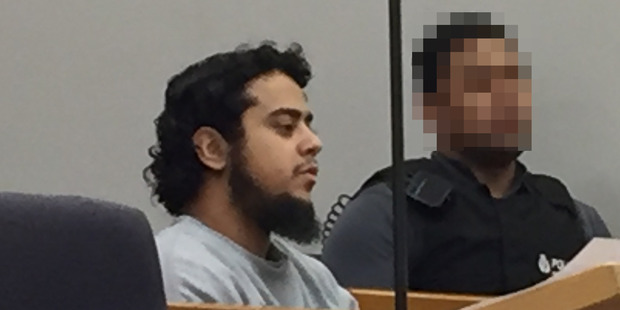But this is typical Islam here in NZ. A Good Boy travels to Syria, threatens jihad, recruits… this is a ploy for Islamics to get more Government funding to get imams in prisons.
See also: Why Muslim rulers prefer illiteracy

The parents of a man who has admitted to the first New Zealand charges linked to home-grown radicalisation insist he’s a “good boy”.
They have also raised concerns that their son, who is being held in solitary confinement, will suffer if handed a long prison sentence for his crimes.
Last week, Imran Patel, 26, and Niroshan Nawarajan, 27, pleaded guilty to charges relating to violent radical videos.
Police found Nawarajan in possession of a laptop containing videos entitled Flames of War and Massacre of the Shias.
Patel was charged with making objectionable publications, two charges of distributing that material, and one charge of possession of objectionable material.
The 31 clips included 13 that featured people being beheaded, shot, blown up, set on fire and having limbs amputated as well as graphic war footage.
He has been in trouble in the past.
A few years ago, he was stopped at the airport by authorities from flying to Syria with friends to fight against the Bashar al-Assad regime.
He was also jailed for threatening a driver with a knife, and in a separate incident convicted for intimidating a former New Zealand Muslim Association president at his home.
He will be sentenced in June, but his father – who spoke on condition he or his wife were not named – said Imran was at heart a good person and of no risk to anyone.
His father accepts his son has made mistakes, which had taken its toll on the family.
“It’s a nightmare for any mother and father, we can’t eat properly, we can’t sleep properly, the whole family is shattered.
“I’m upset of course, it’s a terrible thing. Whatever you’re doing is wrong. We’re not stupid, we’re ordinary good people, we want to live in a peaceful environment and this beautiful country we live in, and thank god nothing has happened in New Zealand yet and we remain like this for a long, long time.”
But while his son had broken the law, sentencing him to a long prison sentence would be detrimental, he said.
His son, who had told him he had not realised he was breaking the law, had accepted he had made a mistake and was willing to accept help.
“He’s a silly boy, put it this way, but he’s not trouble like people are thinking.
“Obviously there is an issue and people need to be concerned about it, but how seriously do you take it. You put him in [jail] for two years, three years, then what?”
The issue of radicalisation was a sensitive topic and the local Muslim community needed to come together with authorities to combat it, something Patel’s father said he had been trying to organise for several years.
Just a week after his son was arrested he hosted a meeting at his home involving Imran’s friends, community leaders and police representatives.
“The New Zealand public is smarter than most of the Western countries, they’re not stupid, that’s why we’re still good. We pray all the time that God will look after this country for what we have.”
Patel’s mother was upset he had been in solitary confinement since being moved from Mt Eden Prison to Paremoremo Prison.
They were not condoning what he had done, but believed the best way to combat such naivety within the Muslim community was through education.
“Honestly, Imran has done something wrong but I don’t think it’s the way to fix these problems.
“By locking him up, what does that achieve? He’s been there for five months, I said to his lawyer, ‘where’s Corrections, where’s the rehabilitation?'”
But security expert Dr Paul Buchanan said Patel’s previous history meant he had to be considered a potential domestic terrorist threat.
“The classic Isis recruit is an angry young man, a guy who is a convert of or born into Islam, who is angry at society.
“This (Patel’s case) strikes me as troubling because he’s displaying all the characteristics of a classic Isis recruit.”
However, locking him in prison with no rehabilitation would only lead to an even angrier person once he was released.
The Government needed to look at introducing de-radicalisation programmes into prisons, by appointing moderate preachers to help counsel young people, he said.
Last week, Professor Richard Jackson, deputy director of the National Centre of Peace and Conflict Studies at the University of Otago, said a heavy-handed response could be detrimental.
He also urged media to take great care in reporting the case, as it could cause xenophobia and add to radicalisation.
“It is a bit worrying, because to be honest the media has not been that responsible in reporting on these types of issues … and [it] contributes to that broader social anxiety.
“There is a strong well-spring of public opinion out there that Muslims, as a group of people, are inherently dangerous and this will confirm that and lead to more calls to restrict immigration and perhaps expel people from the country.”
Corrections declined to comment on Patel’s solitary confinement status, citing security and privacy issues.
‘The family is shattered’: Auckland parents anguished over son’s radicalism charges
